| Listing 1 - 10 of 25 | << page >> |
Sort by
|
Book
ISBN: 9781612347004 9781612347035 1612347037 1612347002 Year: 2014 Publisher: [Lincoln, Nebraska]
Abstract | Keywords | Export | Availability | Bookmark
 Loading...
Loading...Choose an application
- Reference Manager
- EndNote
- RefWorks (Direct export to RefWorks)
Since the end of World War II a paradigm shift has occurred in armed conflict. Asymmetric, or fourth-generation warfareùthe challenge of nonstate belligerents to the authority and power of the stateùhas become the dominant form of conflict, while interstate conventional war has become an increasingly irrelevant instrument of statecraft. In asymmetric conflicts the enemy is often a fellow citizen with a different vision for the future of the countryùwaging war among the people, maneuvering on the borderlines between parliamentary politics, street politics, criminal activity, and combat operatio
Polemology --- Military history, Modern --- Asymmetric warfare --- Military art and science --- Modern military history
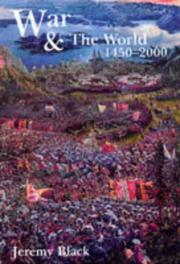
ISBN: 1299463932 0300147694 0585351864 9780585351865 9780300147698 0300072023 0300082851 9780300072020 Year: 1998 Publisher: New Haven, Conn. Yale University Press
Abstract | Keywords | Export | Availability | Bookmark
 Loading...
Loading...Choose an application
- Reference Manager
- EndNote
- RefWorks (Direct export to RefWorks)
In this brilliant history of warfare, Jeremy Black is the first to approach the entire modern era from a comprehensive global perspective. He provides a wide-ranging account of the nature, purpose, and experience of war over the past half-millennium and argues the importance of viewing the rise of European power within a wider international context. Investigating both land and sea warfare, Black examines weaponry, tactics, strategy, and resources as well as the political, social, and cultural impact of conflict.The book takes issue with established interpretations, not least those that emphasize technology, and challenges the view that European military and naval forces were dominant throughout the period. European mastery at sea did not always translate into equivalent success on land, says Black, and many non-European military systems-the Ottomans in their expansionist years, Babur and the Mughals in sixteenth-century India, and the Manchu in China in the following century, for example-were formidable in their own right. The author contends that in the nineteenth century, the focal period of Europe's military revolution, the international military balance shifted decisively. Black shows how military developments, combined with political, economic, and ideological shifts, influenced the nature and success of European imperialism. Linking debates on early modern history with those of more recent centuries, he offers a fundamental reexamination of the role of war in the progress of nations.
Military history, Modern. --- War and society --- History, Modern. --- Modern history --- World history, Modern --- World history --- Modern military history --- History. --- Europe
Book
ISBN: 9789004395688 9789004395695 9004395687 9004395695 Year: 2019 Publisher: Leiden Boston
Abstract | Keywords | Export | Availability | Bookmark
 Loading...
Loading...Choose an application
- Reference Manager
- EndNote
- RefWorks (Direct export to RefWorks)
The World of the Siege examines relations between the conduct and representations of early modern sieges. The volume offers case studies from various regions in Europe (England, France, the Low Countries, Germany, the Balkans) and throughout the world (the Chinese, Ottoman and Mughal Empires), from the 15th century into the 18th. The international contributors analyse how siege narratives were created and disseminated, and how early modern actors as well as later historians made sense of these violent events in both textual and visual artefacts. . The volume's chronological and geographical breadth provides insight into similarities and differences of siege warfare and military culture across several cultures, countries and centuries, as well as its impact on both combatants and observers.
Iconography --- Thematology --- World history --- Siege warfare --- Military history, Modern --- History --- Modern military history --- 355 <09> --- 355 <09> Militaire geschiedenis --- Militaire geschiedenis --- Military history, Modern. --- History.
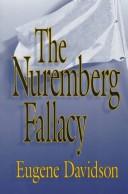
ISBN: 0826260284 9780826260284 0826212018 9780826212016 Year: 1998 Publisher: Columbia University of Missouri Press
Abstract | Keywords | Export | Availability | Bookmark
 Loading...
Loading...Choose an application
- Reference Manager
- EndNote
- RefWorks (Direct export to RefWorks)
Military history --- War crimes --- Military history, Modern --- History & Archaeology --- History - General --- Military historiography --- Wars --- Historiography --- History --- Naval history --- Crime --- Modern military history
Book
ISBN: 0203058666 1283887851 1136596143 9781136596148 1579581811 9781579581817 9780203058664 9781136596216 9781136596285 Year: 1999 Publisher: Chicago London Fitzroy Dearborn
Abstract | Keywords | Export | Availability | Bookmark
 Loading...
Loading...Choose an application
- Reference Manager
- EndNote
- RefWorks (Direct export to RefWorks)
Discusses the roots of war, various alliances and summit meetings meant to forestall conflict, and the background and events connected with numerous specific conflicts in the second half of the twentieth century.
World politics --- Military history, Modern --- Modern military history --- Colonialism --- Global politics --- International politics --- Political history --- Political science --- World history --- Eastern question --- Geopolitics --- International organization --- International relations
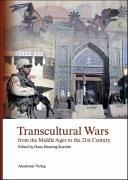
ISBN: 3050049952 9783050049953 9783050041315 3050041315 Year: 2006
Abstract | Keywords | Export | Availability | Bookmark
 Loading...
Loading...Choose an application
- Reference Manager
- EndNote
- RefWorks (Direct export to RefWorks)
Eine von der Deutschen Forschungsgemeinschaft getragene Forschergruppe an der Universität Regensburg untersucht seit einigen Jahren im Rahmen einer Neuen Militärgeschichte "Formen und Funktionen des Krieges im Mittelalter". Im März 2004 wurde auf einer international und interdisziplinär ausgerichteten Fachtagung, organisiert von Mitgliedern der Regensburger Forschergruppe zusammen mit dem Hamburger Institut für Sozialforschung, versucht, traditionelle Epochengrenzen, wie sie zwischen Mittelalter und Neuzeit nach wie vor bestehen, zu überwinden. Einen vielversprechenden Ansatz hierfür bot die gerade in jüngster Zeit sehr kontrovers geführte Debatte über die "Kulturen des Krieges" (John Keegan) und die mit ihr untrennbar verbundene Frage nach der typologischen Verortung der jeweiligen Konflikte. Anhand der Kategorie des "transkulturellen Krieges" wurde der Frage nachgegangen, welche Gemeinsamkeiten es zwischen mittelalterlichen und neuzeitlichen Kriegen gibt, wie neu die derzeit viel beschriebenen "Neuen Kriege" wirklich sind. Darüber hinaus wurde epochenübergreifend untersucht, was Krieg zwischen Kulturen ausmacht und wie er sich typologisch fassen lässt. War is a predominant theme in medieval as well as in modern historical research. Whereas both disciplines tend to dwell on this topic separately, this volume aims at crossing the artificial line of division between medieval and modern wars. War is regarded as a historical phenomenon the continuitiesof which prevail over any time-specific alternations. A special kind of war is the one waged between or on the line of different cultures. Such transcultural wars are currently a widespread phenomenon - but have been on the agenda throughout history. Different examples and aspects of transcultural wars are discussed in this volume. All papers were presented and discussed at a international conference held in Regensburg in March 2004 which brought war-specialists of the Middle Ages and the Modern Period together. With regard to the category of "transcultural" wars the question has been raised what medieval and modern wars have in common and whether the so called "New Wars" are that new at all. On top of that it has been examined what characteristics can be ascribed to transcultural wars, what makes these wars special and how they can best be classified.
Military history, Medieval. --- Military history, Modern. --- Culture conflict --- Cultural conflict --- Culture wars --- Conflict of cultures --- Intercultural conflict --- Social conflict --- Modern military history --- Medieval military history --- History.
Book
ISBN: 1317471865 1315704773 1784028231 9781784028237 9781317471868 9780765680051 076568005X 9781315704777 9781317471844 9781317471851 1317471857 Year: 2007 Publisher: Armonk, New York Boston, Massachusetts
Abstract | Keywords | Export | Availability | Bookmark
 Loading...
Loading...Choose an application
- Reference Manager
- EndNote
- RefWorks (Direct export to RefWorks)
Thoroughly revised to include 25 conflicts not covered in the previous edition, as well as expanded and updated information on previous coverage, this illustrated reference presents descriptions and analyses of more than 170 significant post-World War II conflicts around the globe. Organized by region for ease of access, ""Encyclopedia of Conflicts Since World War II, Second Edition"" provides clear, in-depth explanations of events not covered in such detail in any other reference source. Including more than 180 detailed maps and 150 photos, the set highlights the conflicts that dominate today
World politics --- Military history, Modern --- Modern military history --- Colonialism --- Global politics --- International politics --- Political history --- Political science --- World history --- Eastern question --- Geopolitics --- International organization --- International relations
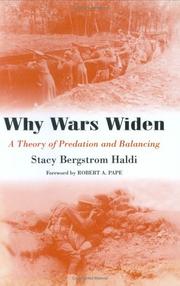
ISBN: 0203011686 9780203011683 0714653071 9780714653075 1135774560 1280095458 9786610095452 9781135774578 9781135774523 9781135774561 9780415761383 Year: 2003 Publisher: London Portland, OR Frank Cass
Abstract | Keywords | Export | Availability | Bookmark
 Loading...
Loading...Choose an application
- Reference Manager
- EndNote
- RefWorks (Direct export to RefWorks)
This work explains how wars are most likely to escalate when the effects of warfare are limited. The author demonstrates that total wars during the modern era were very violent and were far less likely to spread, yet the cost of warfare is falling making future conflicts more likely to spread.
War. --- Military history, Modern --- Modern military history --- Armed conflict (War) --- Conflict, Armed (War) --- Fighting --- Hostilities --- Wars --- International relations --- Military art and science
Multi
ISBN: 9781107643338 9781107026087 9781139199254 1107026083 1107643333 1139508407 1107232171 1139518089 9786613685612 1139515500 113951458X 1139517155 1139519018 1139199250 128077522X 9781139519014 9781139515504 Year: 2012 Publisher: New York Cambridge University Press
Abstract | Keywords | Export | Availability | Bookmark
 Loading...
Loading...Choose an application
- Reference Manager
- EndNote
- RefWorks (Direct export to RefWorks)
Hybrid warfare has been an integral part of the historical landscape since the ancient world, but only recently have analysts - incorrectly - categorised these conflicts as unique. Great powers throughout history have confronted opponents who used a combination of regular and irregular forces to negate the advantage of the great powers' superior conventional military strength. As this study shows, hybrid wars are labour-intensive and long-term affairs; they are difficult struggles that defy the domestic logic of opinion polls and election cycles. Hybrid wars are also the most likely conflicts of the twenty-first century, as competitors use hybrid forces to wear down America's military capabilities in extended campaigns of exhaustion. Nine historical examples of hybrid warfare, from ancient Rome to the modern world, provide readers with context by clarifying the various aspects of conflicts and examining how great powers have dealt with them in the past.
Polemology --- Asymmetric warfare --- Asymmetric warfare. --- Hybrid warfare. --- Irregular warfare --- Military history, Modern. --- History. --- Arts and Humanities --- History --- Hybridkrig --- Militærhistorie --- Asymmetrisk krigsførelse --- Modern military history --- IW (Irregular warfare) --- Unconventional warfare --- War --- Guerrilla warfare --- Military art and science
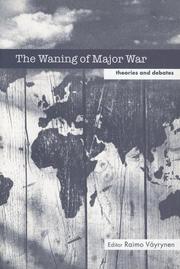
ISBN: 0714685887 0714657239 1315040301 1135320187 9781135320188 9781315040301 9781135320256 9781135320324 9780714657233 9780714685885 113532025X Year: 2013 Publisher: Hoboken Taylor and Francis
Abstract | Keywords | Export | Availability | Bookmark
 Loading...
Loading...Choose an application
- Reference Manager
- EndNote
- RefWorks (Direct export to RefWorks)
This book is a systematic effort by leading international scholars to map the trends in major-power warfare and explore whether it is waxing or waning. The main point of departure is that major-power war as a historical institution is in decline. This does not mean, though, that wars between states are in general disappearing. While there is some convergence in the conclusions by individual authors, they are by no means unanimous about the trend. The articles explore different causes and correlates of the declining trend in major-power warfare, including the impact of the international structu
855 oorlogsvoering --- 810 Theorie - methode --- War. --- Military history, Modern. --- Modern military history --- Armed conflict (War) --- Conflict, Armed (War) --- Fighting --- Hostilities --- Wars --- Military history, Modern --- War --- 810 Theorie en Methode --- International relations --- Military art and science --- Peace
| Listing 1 - 10 of 25 | << page >> |
Sort by
|

 Search
Search Feedback
Feedback About UniCat
About UniCat  Help
Help News
News